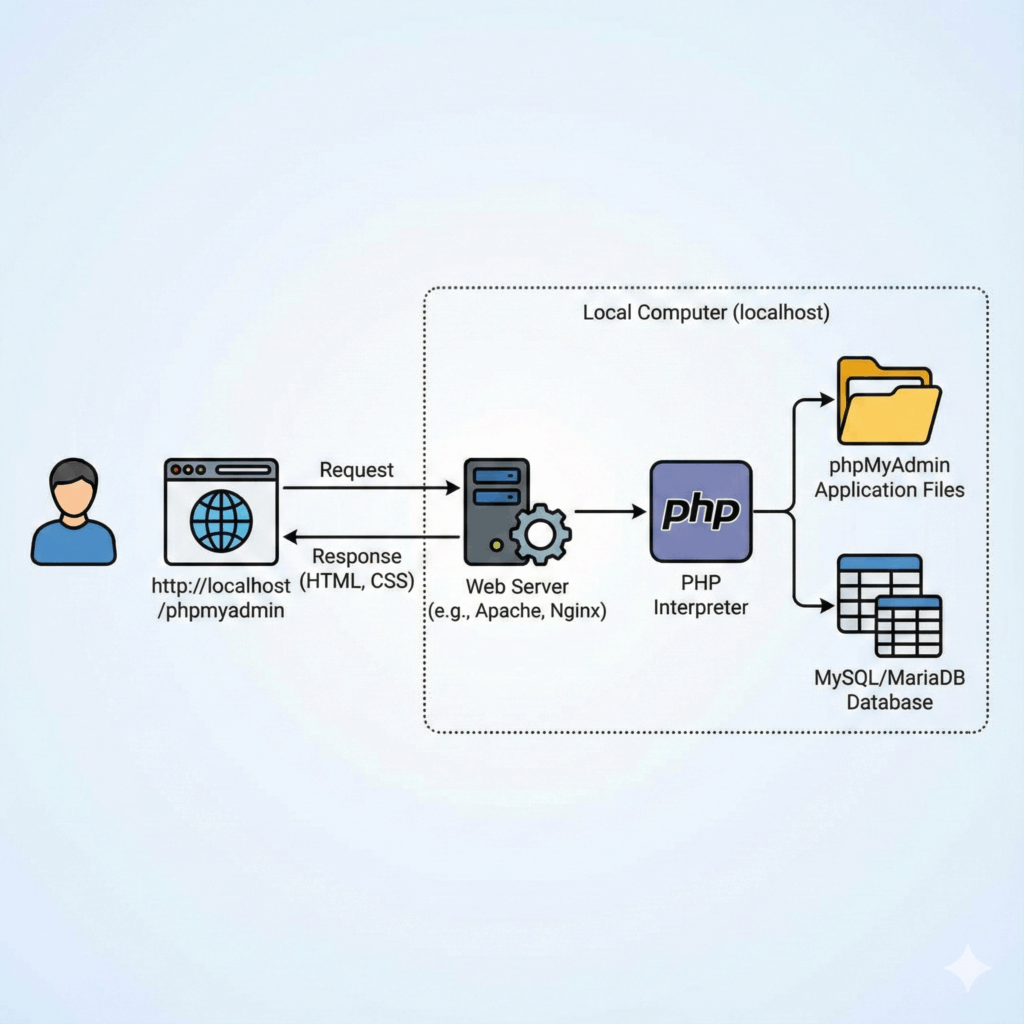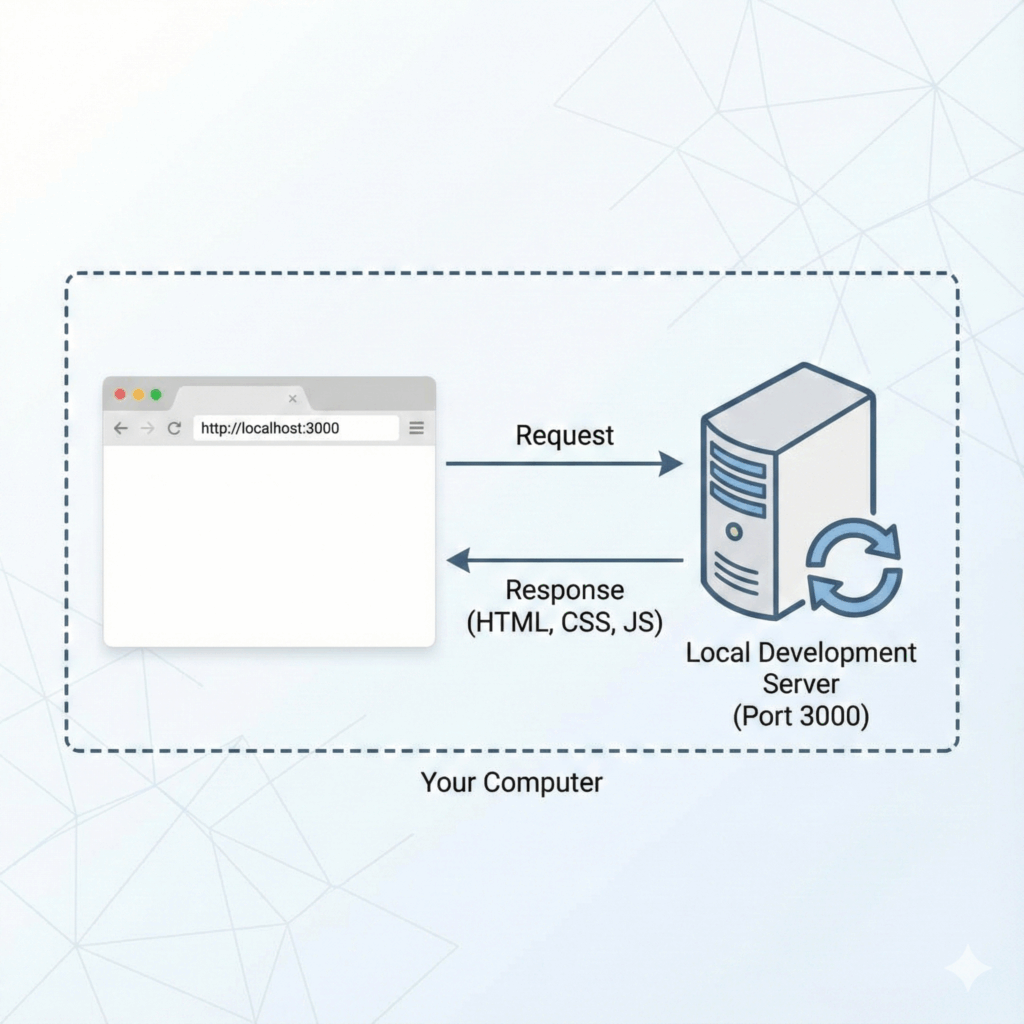reCAPTCHA is a service developed by Google that helps protect websites from spam and abuse. By requiring users to perform specific actions, such as identifying objects in images or solving puzzles, reCAPTCHA distinguishes between genuine human users and potentially harmful automated bots. This security measure is crucial for maintaining the integrity of online forms, comment sections, and account registrations.
Testing reCAPTCHA functionality in local environments is essential for developers to ensure seamless integration before deploying to production. Local development environments allow you to identify and resolve issues without exposing your site to live traffic.
Key Takeaway: You can use reCAPTCHA on localhost with some specific configurations. Developers need to manually add “localhost” and “127.0.0.1” to the list of allowed domains in the reCAPTCHA admin panel. By doing this, you can effectively test and troubleshoot reCAPTCHA within your local environment, ensuring it functions correctly when moved to a live setting.
Understanding the Mechanism Behind reCAPTCHA
reCAPTCHA is a service provided by Google designed to protect websites from spam and abuse. It uses advanced risk analysis techniques and adaptive challenges to distinguish between human users and automated bots.
How reCAPTCHA Works
- Risk Analysis: reCAPTCHA begins its process by analyzing the user’s interaction with the website. This includes monitoring mouse movements, keystrokes, and general user behavior patterns.
- Challenges: If the risk analysis deems the interaction suspicious, reCAPTCHA presents challenges to the user. These can range from simple image recognition tasks to more complex puzzles.
- User Verification: The user’s responses are then evaluated. Successful completion of these challenges verifies that the user is human, granting them access to the site’s features.
- Adaptive Learning: reCAPTCHA employs machine learning algorithms that continually adapt to new threats and improve over time.
Google’s Policies on Localhost Usage
Google’s policies regarding reCAPTCHA usage on localhost have evolved since 2016:
- Domain Restrictions: By default, reCAPTCHA does not support localhost as a domain for its site key. This update aimed to enhance security by ensuring that keys are tied to specific, verifiable domains.
- Manual Configuration: Developers can manually add “localhost” and “127.0.0.1” as allowed domains in the reCAPTCHA admin panel.
Why Implementing on Localhost Can Be Challenging
- Security Concerns: Allowing localhost without restrictions poses security risks, potentially exposing vulnerabilities during development.
- Configuration Hurdles: Setting up reCAPTCHA on localhost requires precise configuration steps which can be cumbersome for developers unfamiliar with Google’s policies.
Understanding these mechanisms and policies helps in configuring reCAPTCHA effectively for local environments, ensuring robust protection against spam while maintaining a seamless development workflow.
Overcoming the Challenges of Using reCAPTCHA on Localhost
Changes in Google’s Policy Since 2016
Google updated its policies in 2016, resulting in significant changes for developers testing reCAPTCHA on localhost. ReCAPTCHA no longer natively supports localhost as a domain for its site key. This move aimed to enhance security and minimize misuse, but it also introduced challenges for local development environments.
Limitations of Using Localhost as a Domain
Testing reCAPTCHA on localhost presents specific limitations:
- Domain Restrictions: The default configuration doesn’t recognize “localhost” or “127.0.0.1” as valid domains.
- Validation Failures: Without proper configuration, reCAPTCHA validation may fail, interrupting your development workflow.
- Security Implications: Using unrestricted site keys can expose your project to security risks if not handled correctly.
Importance of Site Keys for Local Testing
Site keys play a vital role in integrating reCAPTCHA into any environment:
- Production vs. Development Keys: Production keys are intended for live websites, while development keys are used specifically for testing purposes.
- Configuration Steps: To use reCAPTCHA on localhost, you need to manually add “localhost” and “127.0.0.1” to the allowed domains list in the reCAPTCHA admin panel.
- Test Keys: Google provides test keys that allow developers to interact with the service without needing a registered domain.
Practical Steps for Configuration
- Access reCAPTCHA Admin Panel:
- Navigate to the reCAPTCHA admin console.
- Register your site and obtain site and secret keys.
- Add Allowed Domains:
- In the domain settings, add both “localhost” and “127.0.0.1”.
- Save your configurations.
- Use Test Keys Securely:
- For local development, use Google’s provided test keys to avoid unnecessary complications.
- Ensure these keys are not exposed in your version control system by using environment variables or secure storage methods.
These steps help you navigate policy changes and limitations effectively, ensuring that reCAPTCHA works on localhost during your development process without compromising security or functionality.
Key Requirements and Best Practices for Setting Up reCAPTCHA Locally
Step-by-Step Guide on Configuring reCAPTCHA for Local Development
Configuring reCAPTCHA for local development requires a few specific steps to ensure that it functions correctly. By following these steps, you can effectively integrate reCAPTCHA into your localhost environment:
- Create a reCAPTCHA Account: Sign up for a reCAPTCHA account if you haven’t already. Visit the Google reCAPTCHA site and log in with your Google account.
- Register Your Site: In the reCAPTCHA admin panel, register your site by providing a label (e.g., “Local Development”) and selecting the type of reCAPTCHA you want to use (v2 or v3).
- Add Domains: When prompted to add domains, include both
localhostand127.0.0.1. This step is crucial as it allows reCAPTCHA to function in your local environment. - Obtain Site Key and Secret Key: After registering your site, you will be provided with a site key and a secret key. These keys are necessary to configure reCAPTCHA on your localhost.
Best Practices for Managing Keys Securely During Development
Managing your reCAPTCHA keys securely during development is essential to avoid potential security risks and ensure smooth functionality:
- Utilize Test Keys: Google provides test keys specifically designed for development purposes. Using these test keys can help you interact with the reCAPTCHA service without needing a registered domain.
- plaintext Site Key: 6LeIxAcTAAAAAJcZVRqyHh71UMIEGNQ_MXjiZKhI Secret Key: 6LeIxAcTAAAAAGG-vFI1TnRWxMZNFuojJ4WifJWe
- Environment Variables: Store your site key and secret key as environment variables rather than hardcoding them into your application code.
- python import os
- RECAPTCHA_SITE_KEY = os.getenv(‘RECAPTCHA_SITE_KEY’) RECAPTCHA_SECRET_KEY = os.getenv(‘RECAPTCHA_SECRET_KEY’)
- Configuration Files: Securely manage your configuration files by ensuring they are not publicly accessible or included in version control systems like Git.
Adding ‘localhost’ and ‘127.0.0.1’ as allowed domains ensures seamless integration with reCAPTCHA during local development, while utilizing test keys provided by Google enhances security practices.
Implementing and Validating reCAPTCHA Functionality in Django Applications
Integrating reCAPTCHA into a Django application running on localhost involves several steps. Here’s a detailed guide to help you through the process, including validation of user responses from the client-side.
Integrating reCAPTCHA into Django
1. Install the necessary package:
bash pip install django-recaptcha
2. Add captcha to your INSTALLED_APPS in settings.py:
python INSTALLED_APPS = [ … ‘captcha’, ]
3. Configure your reCAPTCHA keys in settings.py:
python RECAPTCHA_PUBLIC_KEY = ‘your_public_key’ RECAPTCHA_PRIVATE_KEY = ‘your_private_key’
4. Create a form using Django’s ReCaptchaField:
python from django import forms from captcha.fields import ReCaptchaField
class MyForm(forms.Form): name = forms.CharField(max_length=100) email = forms.EmailField() captcha = ReCaptchaField()
5. Include the form in your view:
python from django.shortcuts import render from .forms import MyForm
def my_view(request): if request.method == ‘POST’: form = MyForm(request.POST) if form.is_valid(): # Process form data pass else: form = MyForm() return render(request, ‘my_template.html’, {‘form’: form})
6. Render the form in your template:
html
Validating User Responses
Once integrated, validating user responses ensures that reCAPTCHA is functioning correctly.
- Client-Side Validation:
- This occurs automatically when the user interacts with the reCAPTCHA widget on your form. The widget will display a challenge (such as selecting images or solving a puzzle) which users must complete before submitting the form.
- Server-Side Validation:
- Upon form submission, Django’s
ReCaptchaFieldhandles validation by communicating with Google’s reCAPTCHA API. If the response is invalid, an error message will be added to the form’s errors. - You can also manually verify responses by sending a POST request to Google’s verification endpoint:
- python import requests
- def verify_recaptcha(response): payload = { ‘secret’: settings.RECAPTCHA_PRIVATE_KEY, ‘response’: response } r = requests.post(‘https://www.google.com/recaptcha/api/siteverify‘, data=payload) return r.json().get(‘success’, False)
By following these steps and utilizing both client-side and server-side validation, you can ensure that reCAPTCHA works effectively within your Django application on localhost.
Troubleshooting Common Issues When Using reCAPTCHA Locally
When working with reCAPTCHA in local environments, you might encounter several common errors. Understanding these issues and their solutions can save you a lot of time.
Common Error Codes and Their Solutions
Error Code: invalid-input-secret
Cause: This error occurs when the secret key is invalid.
Solution: Ensure that the secret key used matches the one provided by Google for your reCAPTCHA setup.
Error Code: invalid-input-response
Cause: This error indicates that the response parameter is missing or invalid.
Solution: Verify that the response token is being correctly sent from the frontend to your server.
Error Code: missing-input-secret
Cause: The secret parameter is missing.
Solution: Make sure to include your secret key in the verification request sent to Google’s API.
Error Code: missing-input-response
Cause: The response parameter (token) is missing.
Solution: Ensure that the reCAPTCHA widget is properly displayed and that the user interaction generates a valid token.
Other Common Issues
Invalid Site Key for Localhost
Check if “localhost” and “127.0.0.1” are added to your allowed domains in the reCAPTCHA admin panel.
Network Errors
Verify network connectivity and ensure there are no firewall restrictions blocking requests to Google’s servers.
CORS Policy Errors
Adjust your CORS policy settings to allow requests from localhost during development.
Best Practices
To avoid these issues, always double-check your site keys, ensure correct configuration, and validate captcha responses both on the client-side and server-side. Testing thoroughly in a local environment helps catch these errors early, ensuring smooth deployment in production environments.
Exploring Custom Local Domains as an Alternative Solution for Testing reCAPTCHA
Using a custom local domain setup can provide a seamless experience when integrating reCAPTCHA during development. By configuring your machine to recognize a custom domain, you mitigate some of the typical challenges associated with using localhost.
Benefits of Custom Local Domains
- Enhanced Realism: Mimicking a real-world environment helps ensure that reCAPTCHA behaves as expected when deployed.
- Improved Testing: Custom domains allow you to test domain-specific features more effectively, reducing the risk of unforeseen issues post-deployment.
- Avoiding Restrictions: Using a custom local domain bypasses the limitations imposed on
localhostand127.0.0.1, making it easier to manage site keys and settings.
Considerations
When setting up a custom local domain:
- Hosts File Modification:
- Modify your system’s hosts file to map your chosen custom domain (e.g.,
local.mysite.com) to127.0.0.1. - Example entry in hosts file:
- 127.0.0.1 local.mysite.com
- Updating reCAPTCHA Settings:
- Ensure the custom domain is added to the list of allowed domains in the reCAPTCHA admin panel.
- Browser Configuration:
- Some browsers may cache DNS settings, so clear your cache or restart your browser after modifying the hosts file.
By thoughtfully implementing a custom local domain, developers can streamline their testing processes and better simulate production environments, ensuring smoother deployment and functionality of reCAPTCHA on live sites.
Conclusion
Ensuring you understand how reCAPTCHA works on localhost is crucial for seamless web development. By adding “localhost” and “127.0.0.1” to your allowed domains, you can effectively test reCAPTCHA functionality in a local environment.
Best Practices:
- Secure Key Management: Always use separate site keys for development and production.
- Utilize Test Keys: Google provides test keys that facilitate safe interaction with the reCAPTCHA service without needing a registered domain.
If persistent issues arise, consider creating custom local domains such as through a hosts file entry. This approach can provide a more seamless integration with reCAPTCHA during development.
Experimenting with these strategies will help you answer the question, does reCAPTCHA work on localhost? The answer is yes, but it requires specific configurations and considerations.




